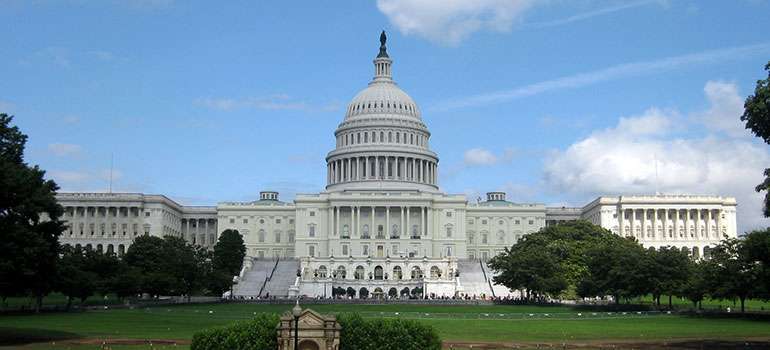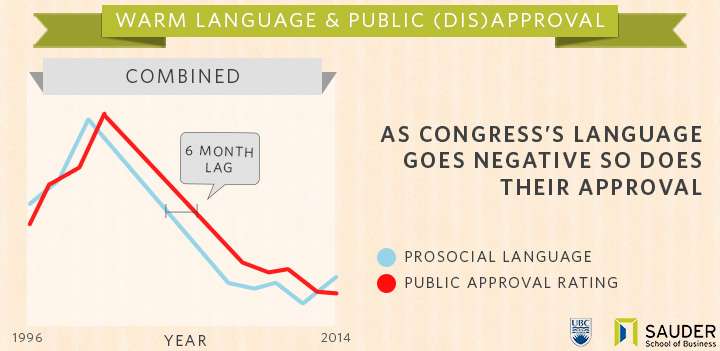Congress approval rating tanking over poor choice of words

U.S. Congress approval ratings are at record lows. Now a new study suggests that this may be partly due to a decline in the use of warm, agreeable language in the House.
The study, co-authored by University of British Columbia business professor Karl Aquino, found that the use of prosocial words—language such as cooperate or contribute—by lawmakers predicts public approval of Congress six months later.
"If members of Congress want to be viewed more positively by the public, it appears that the words they use matter," says Aquino, a marketing and behavioural science professor in at UBC's Sauder School of Business. "Our study suggests that the electorate is listening and reacts favourably when Congressional members use prosocial language."
The researchers' results were derived from a textual analysis of 124 million words spoken in the U.S. House of Representatives between 1996 and 2014, using a computer model that searched for words validated as having prosocial connotations. The words whose decline most strongly predicted a decline in public approval were gentle, involve, educate, contribute, concerned, give, tolerate, trust and cooperate.
Congress's approval rating has slumped precipitously since 2002, when public approval was reliably over 50 per cent. Recent polls cite ratings as low as only 10 per cent.
Aquino and his co-authors controlled for factors which may have contributed to declining approval, such as the unemployment rate, and governance factors such as the number of bills passed and presidential vetoes. They found that warm, prosocial language was the strongest single predictor of public sentiment.

The authors suggest the media may be playing a role in this relationship. They found that prosocial language predicted positive media coverage and positive coverage predicted public approval.
The forthcoming Proceedings of the National Academy of Sciences study, "A Decline in Prosocial Language Helps Explain Public Disapproval of the U.S. Congress" was co-authored by Aquino with lead author UBC Psychology PhD graduate Jeremy Frimer and Harrison Oakes of the University of Winnipeg, Jochen Gebauer of the University of Mannheim and Sauder PhD graduate Luke Zhu, now with the University of Manitoba.
More information: A decline in prosocial language helps explain public disapproval of the US Congress, www.pnas.org/cgi/doi/10.1073/pnas.1500355112















